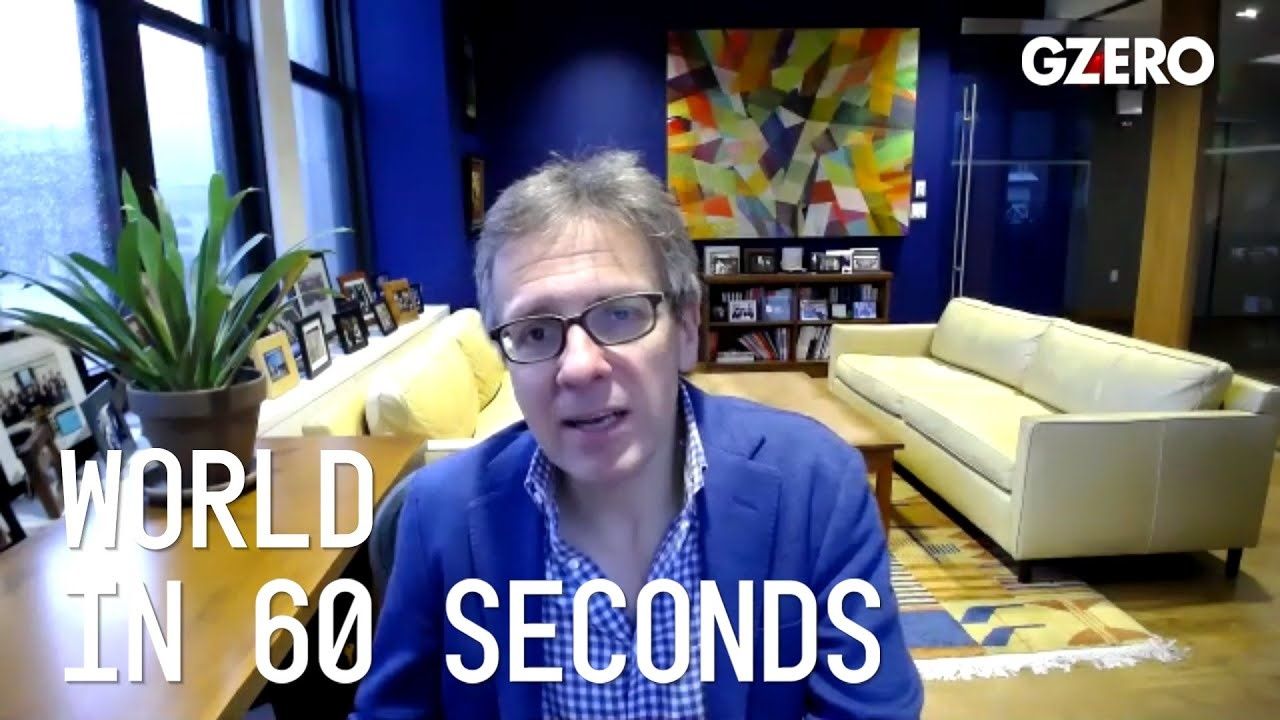ask ian
Uncoordinated Global Coronavirus Response; Kim Jong-un; US Immigration

Uncoordinated Global Coronavirus Response; Kim Jong-un; US Immigration | World In :60 | GZERO Media

What's the coronavirus update? Is there global coordination yet fighting this pandemic?
Global coordination is completely absent. There is a level of harmonization from the central bank governors because they are mostly technocratic and independent. And because they all basically hail from Western advanced industrial countries. The Chinese don't have a convertible currency. So, it's a wholly different story, monetary policy.
Otherwise, fiscal policy is not oriented in coordination. It is certainly not what the emerging markets, the developing world, is going to need soon. The G20 and G-7 meetings so far have accomplished very little, on that front. But most importantly, a complete lack of coordination on the medical side, in terms of testing, metrics, even things like the contact tracing, really needed across the West. France says they want to start their own, but they've got privacy issues with Apple right now. Need the private sector and the public sector, at the very least, coming together on the tech fixes. That should be the easiest thing to do. You want one system. We've got every country at best, coming up with one for their own.
Even inside the United States, there's a lack of coordination. President Trump comes up with, "here is what phase one, phase two, phase three looks like." Then you've got a bunch of states around the United States saying, "we're going to open up even before phase one is in place." Not what you would have expected, but that's where we are.
What do you make of reports that Kim Jong-un is extremely unwell?
He's not that old. If he dies, there's probably not a good succession plan in place. I want to assume, his younger sister would take over since she's the one that has been given much more significant authority, big roles across the North Korean state government. But, might there be an internal military coup? One doesn't know. Danger in a country like this is, whenever the leader is sort of not there, whether it's out of the country or under surgery, the potential for a, you know, a hostile response internally is real. It's clearly very dangerous when the world's most totalitarian state, one of the only ones that still exists now, with virtually no intel, even from the Chinese on what's going on inside, and suddenly the leader might be gone. The people that will suffer the most on the back of this will be the North Koreans themselves. Hard to imagine that that would lead to military activities that would threaten stability in South Korea or Japan. But that doesn't mean that you would have, if he were to die, the question of the disposition of their nuclear weapons and material, whether the military would all act in coordinated fashion. Those are real concerns and one of the reasons nobody wanted them to have nukes to begin with.
And then finally, how will the US suspending immigration change the status quo?
Not very much. Trump makes announcements like this and then there are all sorts of exceptions. There are lots of immigrants you need. The State Department just a few days ago said they want more immigrants and they're going to make it easier for them to apply, if they can be a part of the health care response to coronavirus. We desperately need more people doing contact tracing. People involved in that I suspect we'll also be welcome in terms of immigrants. I suspect that there will be exceptions made for people that are able to pay large sums of money to get visas that way. So, first, not many people traveling right now. Generally, all sorts of quarantine, about 60% of the global population under lockdown.
Secondly, not going to have much real impact. There'll be exceptions. But of course, what Trump wants to do is give something that his base really loves and at the same time, if he agitates international alliances, he doesn't really care. That's a longer-term problem and it's one he doesn't think matters very much. So, unfortunate from my perspective, because you don't need to undermine alliances that have already gotten weaker over the past years. But Trump's view is those relationships don't add to very much in terms of American influence and power. And he's been consistent in the way he's acting, the way he's felt, and policy on that.
America’s new National Security Strategy confirms what Europeans have feared for months: Washington now sees a strong, unified European Union as a problem to be solved, not an ally to be supported.
In this episode of Tools and Weapons, Microsoft Vice Chair and President Brad Smith sits down with Ed Policy, President and CEO of the Green Bay Packers, to discuss how purpose-driven leadership and innovation are shaping the future of one of the world’s most iconic sports franchises. Ed shares how technology and community-focused initiatives, from Titletown Tech to health and safety innovations on the field, are transforming not just the game of football, but the economy and culture of Green Bay itself. He explains how combining strategic vision with investment in local startups is keeping talent in the Midwest and creating opportunities that extend far beyond Lambeau Field.
Subscribe and find new episodes monthly, wherever you listen to podcasts.
More than a week after Hondurans cast their ballots in a presidential election, the country is still stuck in a potentially-dangerous post-election fog.